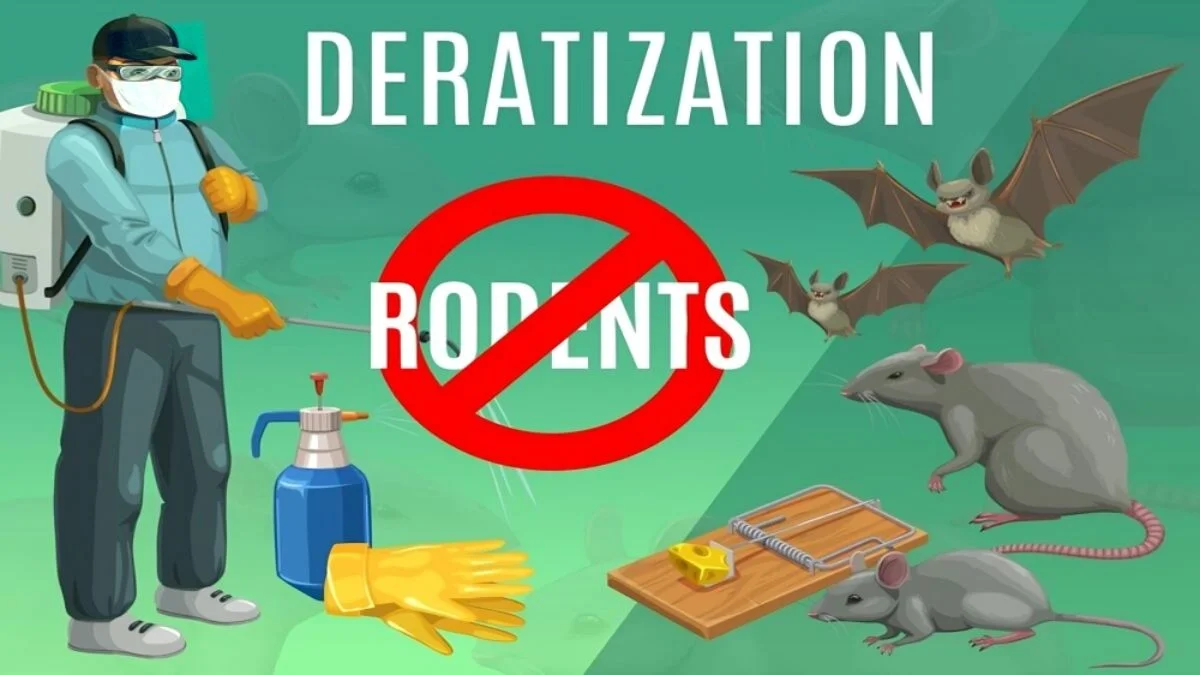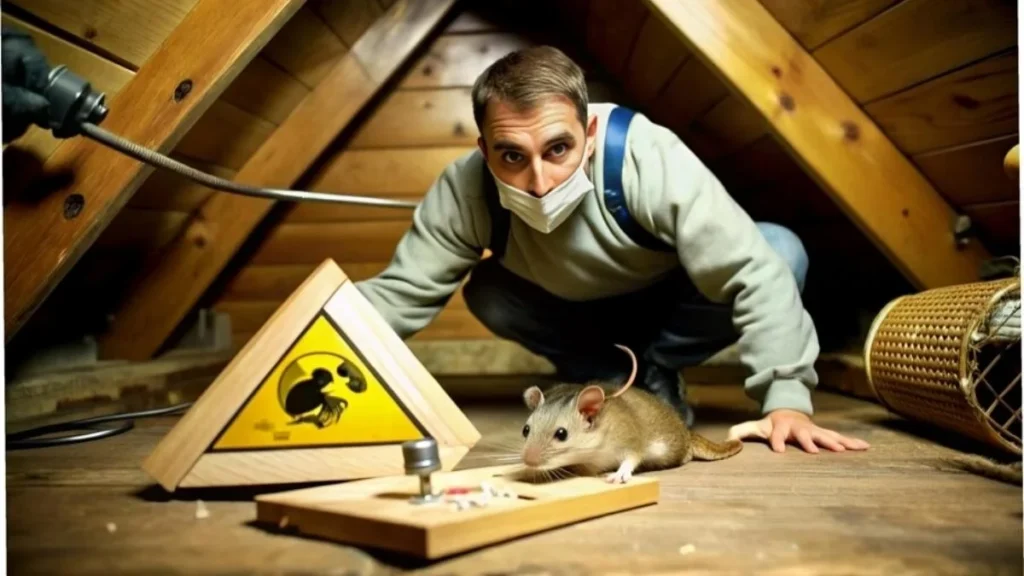TIPS
Understanding Rodent Behavior: Why Prevention Is Better Than Cure

Rodents, including mice and rats, are among the most common household pests. While they may seem small and harmless, these creatures are carriers of diseases, capable of causing extensive property damage and contaminating food supplies. Understanding their behavior is the first step in preventing infestations and protecting your home.
This article delves into the habits and tendencies of rodents, explaining why proactive measures are the most effective way to keep them at bay. With a combination of informed strategies and professional assistance from companies like Habitat Pest & Lawn, you can create a rodent-free environment.
Table of Contents
The Impact of Rodent Infestations
Rodents are more than a nuisance—they can significantly disrupt your home and health.
Health Hazards
Rodents carry a variety of pathogens that can spread through their droppings, urine, and saliva.
- Diseases: Hantavirus, leptospirosis, and salmonella are just a few of the illnesses linked to rodents.
- Allergic Reactions: Rodent fur and waste can trigger allergies and asthma, particularly in sensitive individuals.
Property Damage
Their incessant gnawing can lead to costly repairs and potential safety hazards.
- Chewing Wires: Increases the risk of electrical fires.
- Structural Damage: Rodents burrow into insulation, walls, and furniture, weakening your home’s integrity.
Rodent Behavior: What Makes Them Thrive
To effectively prevent and manage rodents, it’s essential to understand their behavior and needs.
Survival Needs
- Food: Rodents are opportunistic feeders that eat almost anything, including crumbs and pet food.
- Water: Even a small water source, like a dripping faucet, can sustain them.
- Shelter: Warm, enclosed spaces such as attics, basements, and crawl spaces provide ideal nesting spots.
Nocturnal Activity
Rodents are primarily active at night, making it harder to spot them during the day.
- Signs to Watch: Droppings, gnawed materials, and greasy smudges along walls and floors.
Reproduction Rates
Rodents breed rapidly, turning a small problem into a full-blown infestation in a matter of weeks.
- Mice: A single female can produce up to 60 offspring in a year.
- Rats: Larger than mice, they reproduce slightly slower but are equally persistent.
Proactive Rodent Prevention Strategies
Rather than waiting for signs of an infestation, focus on prevention to keep rodents out of your home.

1. Seal Entry Points
Rodents can squeeze through surprisingly small openings—about the size of a dime for mice and a quarter for rats.
- Inspect Your Home: Check for cracks in walls, gaps around doors and windows, and openings near pipes or vents.
- Seal Gaps: Use steel wool or caulking to block potential entry points.
2. Maintain a Clean Environment
Eliminating food and water sources reduces the likelihood of attracting rodents.
- Food Storage: Keep all food, including pet supplies, in airtight containers.
- Trash Management: Empty bins regularly and secure lids tightly.
- Yard Maintenance: Remove fallen fruit, overgrown vegetation, and debris that could provide shelter.
3. Monitor for Early Signs
Early detection allows you to address the problem before it worsens.
- Set Traps: Place traps in areas where rodents are likely to travel, such as along walls or behind appliances.
- Check Regularly: Inspect your home for signs of activity at least once a month.
The Role of Professional Rodent Control
While DIY methods are effective for minor issues, professional services are invaluable for long-term rodent prevention.

Benefits of Professional Help
- Expert Knowledge: Professionals understand rodent behavior and can identify hidden entry points and nests.
- Customized Solutions: Tailored approaches target the specific needs of your home and the type of rodent infestation.
- Comprehensive Results: Professional treatments address current infestations and prevent future occurrences.
Habitat Pest & Lawn provides reliable rodent control services that ensure your home remains protected.
Adapting Strategies for Seasonal Changes
Rodent activity often increases during certain times of the year, requiring seasonal adjustments to your pest control efforts.
Fall and Winter
As temperatures drop, rodents seek warmth indoors.
- Key Actions: Inspect and seal your home’s exterior, especially around the foundation and roofline.
Spring and Summer
During warmer months, rodents may be more active outdoors but still pose a threat to gardens and outdoor spaces.
- Key Actions: Trim trees and bushes, and secure compost bins to minimize outdoor nesting spots.
Sustainable Rodent Control Solutions
Eco-friendly approaches to rodent control protect your home without harming the environment.
Natural Deterrents
- Peppermint Oil: Its strong scent repels rodents when applied to cotton balls or sprayed in vulnerable areas.
- Ultrasonic Devices: Emit high-frequency sounds that deter rodents without using chemicals.
Humane Traps
Use live traps to capture and release rodents away from your property.
Long-Term Prevention: Building Rodent Resistance
Creating an environment that is inhospitable to rodents ensures lasting protection.
Regular Maintenance
- Home Inspections: Periodically check for new entry points or signs of activity.
- Ongoing Cleaning: Maintain a clutter-free home, both indoors and outdoors.
Education and Awareness
Teach family members about the importance of pest prevention to ensure everyone contributes to keeping the home rodent-free.
Conclusion: Prevention Is the Best Cure
Rodent control begins with understanding their behavior and taking proactive measures to prevent infestations before they start. By sealing entry points, maintaining cleanliness, and monitoring for signs of activity, you can protect your home from the dangers posed by these persistent pests.
When additional help is needed, professional services from providers like Habitat Pest & Lawn offer the expertise and resources to eliminate rodents and safeguard your home. Start implementing these strategies today for a safer, healthier living environment.
-

 GENERAL2 months ago
GENERAL2 months agoUncovering the World of кинокрадко: The Dark Side of Film Piracy
-

 GENERAL1 month ago
GENERAL1 month agoUnveiling the Art of преводсч: How Translators Bridge Language Barriers
-

 YOGA1 year ago
YOGA1 year ago4 Person Yoga Poses for Beginners
-

 GENERAL2 months ago
GENERAL2 months agoThe Journey of iamnobody89757: From Anonymous User to Internet Sensation























